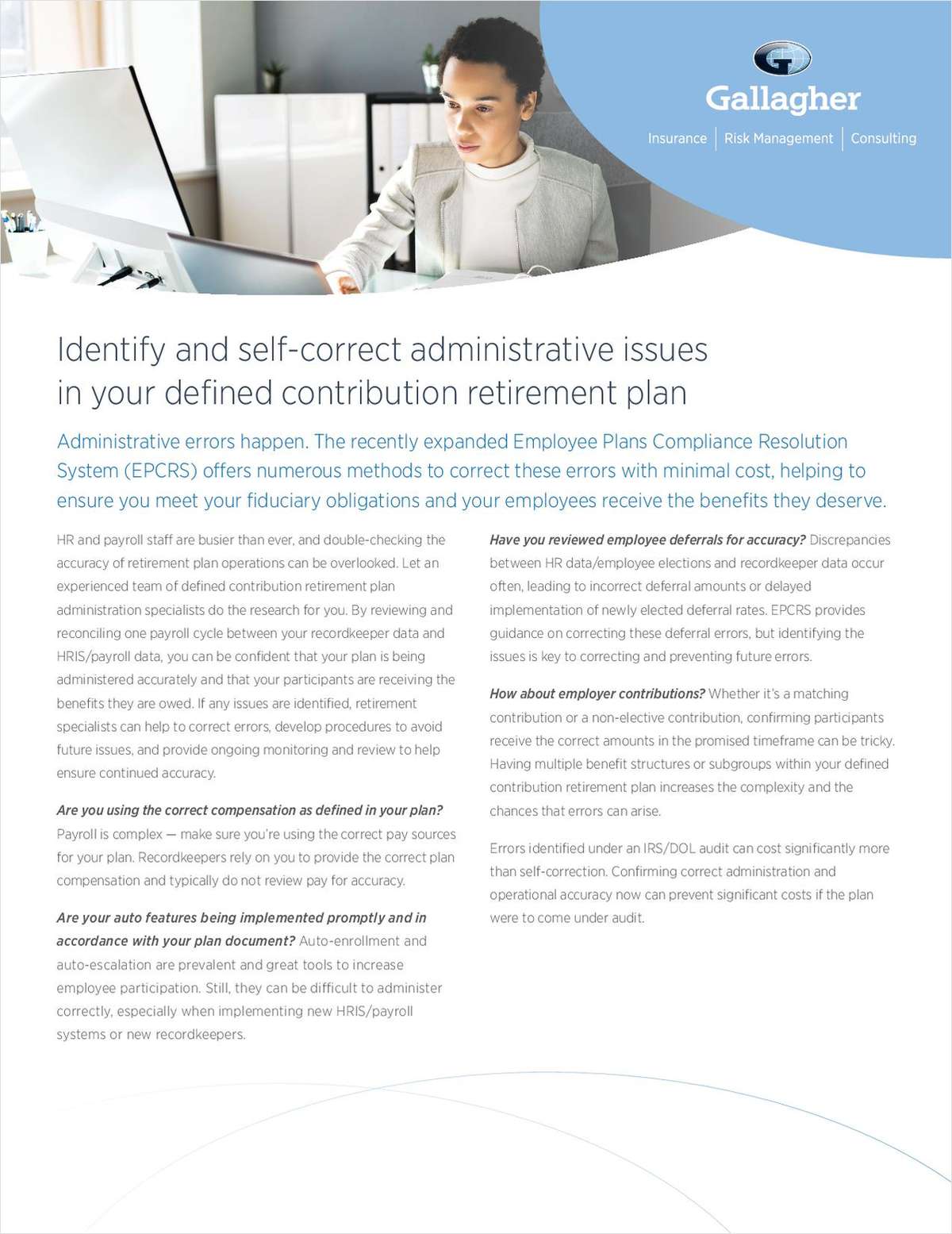 In a proposed change that would probably be helpful to employers and charging parties in “deferral” states, the EEOC would clarify the time allotted for filing a discrimination charge in these states. (Photo: Shutterstock)
In a proposed change that would probably be helpful to employers and charging parties in “deferral” states, the EEOC would clarify the time allotted for filing a discrimination charge in these states. (Photo: Shutterstock)
The United States Equal Employment Opportunity Commission (EEOC) issued proposed regulations that were published in the February 22 edition of the Federal Register. For the most part, the proposed regulations simply make “official” what the agency has been doing for years. But they contain a few interesting substantive provisions, too.
|Substantive proposals
Time for filing in “deferral” states. In a proposed change that would probably be helpful to employers and charging parties in “deferral” states, the EEOC would clarify the time allotted for filing a discrimination charge in these states.
When a state has its own fair employment practices agency, the individual has 300 days to file a charge instead of the usual 180 days. Under the proposed regulations, the individual in a deferral state would get only 180 days to file a charge if the state fair employment practices statute didn't apply at all to the type of discrimination being alleged. For example, if the state statute didn't prohibit discrimination based on religion, then an employee filing a religious discrimination charge with the EEOC in that state would have to file it within 180 days, not 300 days.
On the other hand, if the statute covers the general category of discrimination being claimed by the individual (for example, religious discrimination) but the individual alleges a specific type of violation that is not recognized under the state statute (for example, religious accommodation), then the individual would still get the full 300 days to file a charge on the theory that charging parties are usually lay persons and therefore should not be held to overly-technical interpretations of filing requirements.
Presumably, this proposed change would mean that, if a state statute prohibits sex discrimination but not discrimination based on sexual orientation or gender identity, and if the individual files a charge alleging discrimination based on sexual orientation or gender identity, the EEOC would say the individual had 300 days to file the charge. This is because, in the EEOC's view, discrimination based on sexual orientation or gender identity is a form of sex discrimination.
Investigators will have authority to issue “no-cause” finding and notice of right to sue. Employers will appreciate that the proposed regulations will allow investigators – rather than directors – to issue findings of no cause and notices of right to sue. EEOC investigators are strongly encouraged to reduce their inventory of charges that are two years old or older. This proposal appears to be intended to help investigators dismiss questionable charges quickly and reduce their inventory of unresolved charges.
Names of charging parties in age cases could be withheld from the employer. There is no reference to this in the EEOC's press release or in the preamble to the proposed regulations. But the proposed regulations say that charges brought under the Age Discrimination in Employment Act can be filed by someone acting on behalf of the aggrieved party, and that the name of that individual does not have to be on the charge. Although the individual's name does have to be provided to the EEOC (just not on the charge itself) and can be shared with other governmental agencies, the individual can ask to remain anonymous, and there is nothing saying that his or her name has to be, or will ever be, disclosed to the employer.
The same provision already exists in the EEOC's regulations interpreting Title VII of the Civil Rights Act of 1964, the Americans with Disabilities Act (ADA), and the Genetic Information Nondiscrimination Act (GINA). It appears that the EEOC is merely proposing to bring the ADEA into conformity with its practice under these other statutes.
|Updates and cosmetic changes
Electronic communications. First, the proposed regulations would formally acknowledge that submission of information and documents and communications between the agency, charging parties and employers can be made electronically or digitally. Many, if not most, employers have been receiving and responding to charges through the agency's web portal and communicating with investigators via email for years.
“No-cause” does not mean the employer “won.” Second, the proposed regulations would clarify that even if the agency issues a “no cause” determination, that doesn't mean the employer “won.” The EEOC proposes cosmetic changes to the wording on its Dismissal and Notice of Rights form that the agency thinks will make this point clearer.
This proposal is also unremarkable. All a “no-cause” determination means is that the EEOC will issue a dismissal and notice of rights to the charging party. The charging party still has 90 days from receipt of the notice to file suit alleging discrimination based on the allegations in the charge, and many will continue to do so.
|What's next?
Even though the EEOC did not have a quorum as we went to press, the proposed regulations were approved on December 4, 2018, when the agency still had one—consisting of three Obama appointees and two vacant slots. The proposal passed unanimously, according to the EEOC's press release.
Since December 4, Chai Feldblum (D) has left the Commission and gone into private law practice, leaving three vacancies and only two Commissioners: Acting Chair Victoria Lipnic (R) and Commissioner Charlotte Burrows (D). One of President Trump's nominees for Commissioner, Daniel Gade (R), withdrew from consideration in late December to go into academia. President Trump's only remaining nominee to the Commission, Janet Dhillon (R) (who would become Chair of the Commission), has yet to be confirmed by the Senate. (The President's nomination for EEOC General Counsel, Sharon Fast Gustafson, is also pending.)
Comments on the proposed regulations will be accepted until April 23.
Sally Ramsey ([email protected]) is senior counsel and Robin Shea ([email protected],) is a partner at the management-side labor and employment law firm Constangy, Brooks, Smith & Prophete, LLP. Sally practices in the firm's Nashville office, and before joining Constangy, she was a senior trial attorney with the U.S. Equal Employment Opportunity Commission for 11 years. Robin practices in the firm's Winston-Salem office and is the author-editor of the nationally recognized law blog, Employment & Labor Insider. Both Sally and Robin practice in most areas of employment law, including defense of employers before the EEOC and in the courts.
|Complete your profile to continue reading and get FREE access to BenefitsPRO, part of your ALM digital membership.
Your access to unlimited BenefitsPRO content isn’t changing.
Once you are an ALM digital member, you’ll receive:
- Breaking benefits news and analysis, on-site and via our newsletters and custom alerts
- Educational webcasts, white papers, and ebooks from industry thought leaders
- Critical converage of the property casualty insurance and financial advisory markets on our other ALM sites, PropertyCasualty360 and ThinkAdvisor
Already have an account? Sign In Now
© 2025 ALM Global, LLC, All Rights Reserved. Request academic re-use from www.copyright.com. All other uses, submit a request to [email protected]. For more information visit Asset & Logo Licensing.








